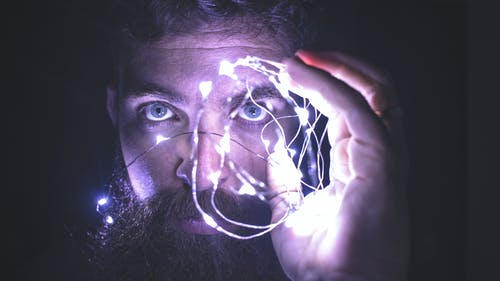Does CBD have psychoactive properties?
If you had to rewind to fifteen years ago, would you believe us if we told you that marijuana would one day become more widely-accepted?
The Marijuana industry is blowing up around the world, and with the recent string of legalizations, it’s allowed the industry to open up to more discoveries, findings and explorations through a series of legit research studies and testing.
Recently, talk has shifted to that of CBD, a chemical compound found within the cannabis plant, particularly because CBD is, in fact, legal in many countries. But because there has been this criminal aspect related to marijuana for so long, many people still don’t actually have a clue as to what CBD really is, or that it can be purchased from head shops like Smoke Cartel in a variety of forms, you can see them here. Most people think that since CBD comes from the marijuana plant, it’s all the same thing.
“Doesn’t CBD cause psychoactive effects?”
To answer your question simply, no, this isn’t the case when it comes to CBD, but here’s what you should know about it…
What is CBD and why is it confused with THC?
CB what? As mentioned prior, CBD (or Cannabidiol as it’s scientifically called) is in fact a chemical compound found within the cannabis plant and is referred to as a cannabinoid compound. This compound is usually extracted out of the cannabis/hemp plant and then utilised for an end-product such as CBD Oil.
So how does CBD work with the body? In case you didn’t know, every single human possesses what’s been termed as our endocannabinoid system and this system is in charge of helping to deal with processes such as pain, sleep, memory, among others.
Also found within the body are what we call cannabinoid receptors (mainly our CB1 and CB2 receptors) which can be found in the brain, nerves, skin, immune cells, bone, fat tissues and gastrointestinal tract. These receptors receive and translate signals from cannabinoids such as CBD as they enter the body. The receptors will then work with your EC system to perform the necessary function, such as helping the body to deal with pain or anxiety.
After study and much research, it’s been discovered and known that CBD is in fact non-psychoactive and doesn’t have the ability to alter your state of mind. That’s partly due to the fact that CBD doesn’t bind with the CB1 receptor which is found in the brain.
What many don’t realise is that the cannabis plant, in fact, contains many different chemical compounds, one of these being THC. THC (or Tetrahydrocannabinol) is in fact opposite to CBD in that it is psychoactive and it has the ability to alter the brain’s state of mind or make one feel ‘high’ as its commonly referred to, causing psychoactive effects as a result.
THC is also extracted from the cannabis plant and manufactured into a product such as THC tinctures.
Why do people use it?
Now we know CBD is non-psychoactive, so why do people utilise the chemical compound?
It’s been proven to help with a multitude of different ailments, illnesses and medical conditions, working hand-in-hand with the body’s CB1 and CB2 receptors each time. As you consume CBD remember those receptors signal to the different parts of the body what needs working on.
Some of the known health benefits include:
- Helping the body to relieve pain and inflammation,
- Reducing anxiety and stress and helping with related disorders such as depression, panic attacks or PTSD.
- Regulating sleeping patterns and helping with sleep disorders such as Insomnia.
- Alleviating skin irritations such as itching skin or conditions such as eczema. It also helps to reduce acne/scarring.
- Balancing one’s appetite as well as metabolism.
But CBD is also known to help treat some more serious medical conditions such as childhood epilepsy syndromes; Dravet syndrome and Lennox-Gastaut syndrome as well as cancer-related symptoms from the side effects from chemotherapy.
In fact, there’s a cannabis-derived medicine (containing CBD) available on the market used to treat children suffering from epilepsy, sold as Epidiolex.
Side effects and precautions
As with anything, every person does react differently to CBD so it’s suggested to start with a small dose once a day, in a comfortable environment, and when you don’t have anywhere to be – hence, just before bedtime is a great time of day to first test out.
As each body type is different, some may experience some side effects whilst others nothing – it’s imperative to know that your dosage/product strength will also affect this.
Some of the known side-effects include fatigue/lethargy, an increased/decreased appetite, nausea, diarrhoea, vivid dreaming, dizziness, and red eyes.

